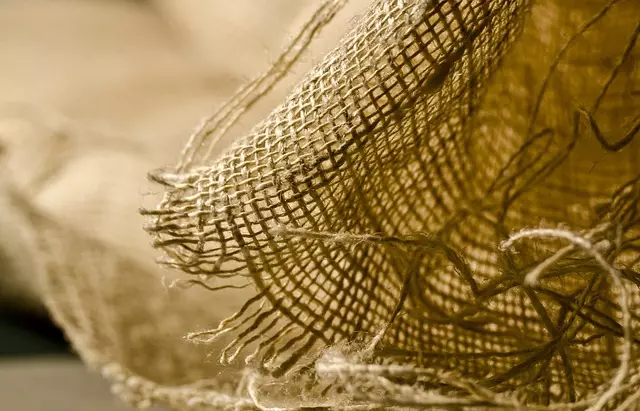Muscle soreness, or DOMS, often results from intense exercise that causes microscopic muscle fiber damage and an inflammatory response. Factors such as the type of exercise, its eccentric nature, workout intensity, and insufficient warm-up can trigger this sensation. Kratom, a natural supplement derived from Mitragyna speciosa, is gaining attention for its potential to alleviate muscle soreness due to its alkaloid content that may interact with opioid receptors for pain relief. For effective recovery, it's important to use kratom under professional guidance and in conjunction with proper hydration, balanced nutrition post-exercise, and adequate rest. Additionally, high-quality kava kava root is recommended as a complementary natural remedy due to its analgesic properties. It's crucial to buy kava kava root from reliable suppliers who offer third-party lab results for safety assurance. Users should be aware of the potential for side effects and risks associated with dependency when using these supplements, and they must adhere to safe dosage guidelines and local legal regulations regarding their use. Always consult healthcare professionals before incorporating these natural remedies into your health regimen, especially if taking other medications.
Muscle soreness can hinder even the most dedicated fitness enthusiasts and athletes, often emerging after intense physical activity. This article explores the multifaceted nature of muscle soreness, its underlying causes, and delves into the promising relief strategies that kratom supplements offer. We will navigate the safe usage of these supplements, highlighting their potential benefits and discussing possible side effects, including a brief on the alternative option of purchasing kava kava root for those who prefer or require it. By understanding the role of kratom in muscle recovery, readers can make informed decisions to enhance their well-being and performance.
- Understanding Muscle Soreness and Its Causes
- The Role of Kratom Supplements in Alleviating Muscle Soreness
- Safe Usage and Potential Side Effects When Using Kratom for Soreness Relief, with a Note on Buying Kava Kava Root as an Alternative
Understanding Muscle Soreness and Its Causes

Muscle soreness, commonly known as delayed-onset muscle soreness (DOMS), can occur following intense or unaccustomed exercise. This phenomenon is a natural response to microscopic damage to muscle fibers, which triggers an inflammatory cascade and the associated discomfort. The causes of muscle soreness are multifactorial, often related to the eccentric component of the exercise – where muscles lengthen while contracting – as well as the intensity of the workout, inexperience with certain movements, or a lack of proper warm-up. Understanding these triggers is crucial for implementing effective recovery strategies.
In the realm of natural remedies, kratom supplements have gained attention for their potential role in muscle soreness relief. Mitragyna speciosa, the scientific name for kratom, contains alkaloids that may interact with opioid receptors in the body, providing pain-relieving effects. When considering kratom as a remedy for muscle soreness, it’s important to approach its use with caution and proper dosing, as per the recommendations of healthcare professionals. Additionally, pairing kratom with other recovery practices, such as adequate hydration, nutrient-rich post-workout meals, and rest, can enhance its efficacy. For those interested in exploring natural alternatives to manage muscle soreness, buying high-quality kava kava root, which is often associated with similar analgesic properties, could be a complementary option to consider for a holistic approach to pain relief and recovery.
The Role of Kratom Supplements in Alleviating Muscle Soreness

Kratom supplements have garnered attention in various health and wellness spheres, including as a potential aid for muscle soreness relief. Traditionally used in Southeast Asia for its stimulating and analgesic properties, kratom contains compounds known as alkaloids, which interact with the body’s opioid receptors. This interaction can help modulate pain signals, making it a viable option for those experiencing muscle soreness, whether from intense exercise, physical labor, or other activities that strain the muscles.
For individuals seeking natural remedies to manage post-exercise discomfort, kratom supplements offer a compelling alternative to conventional pain medication. It’s important to approach their use with care, as dosage and quality of the product can significantly impact its effectiveness. Users interested in incorporating kratom into their muscle soreness regimen should source high-quality, standardized extracts from reputable vendors. Alongside a balanced diet and proper hydration, kratom can be a part of a holistic approach to maintaining muscle health and managing the expected aches that come with an active lifestyle. Those interested in buying kava kava root, which is often associated with similar benefits, should similarly ensure they purchase from reliable sources to ensure both safety and efficacy.
Safe Usage and Potential Side Effects When Using Kratom for Soreness Relief, with a Note on Buying Kava Kava Root as an Alternative

When exploring natural remedies for muscle soreness relief, kratom supplements have gained attention due to their potential analgesic properties. To ensure safe usage of kratom, it is crucial to adhere to recommended dosages and to be aware that its effects can vary significantly based on individual physiology and the specific strain used. The Mitragyna speciosa plant, from which kratom is derived, contains alkaloids that may interact with various bodily systems, including those responsible for pain perception. Users should start with a low dose to gauge their sensitivity before considering an increase, and it is advisable to consult with a healthcare provider before integrating kratom into one’s health regimen, especially if other medications are being taken.
While kratom may provide effective soreness relief for some, potential side effects should not be overlooked. These can include nausea, dizziness, and constipation, among others. Long-term use or high doses can lead to more severe issues, and there have been warnings about the potential for dependence and withdrawal symptoms. It is also important to note that the legal status of kratom varies by region, and its purchase should comply with local laws. For those seeking alternative options without the potential risks associated with kratom, buying kava kava root may be considered. Kava, a traditional beverage in certain cultures, has been used historically for its calming effects and pain-relieving properties. As with any supplement, it is imperative to purchase high-quality, reputable kava products from trusted sources to avoid adulteration or contamination, which can lead to liver damage or other health concerns. When buying kava kava root, look for vendors that provide third-party lab results to ensure safety and efficacy.
Muscle soreness can be a significant hindrance to individuals engaging in physical activities, whether for fitness, sports, or daily tasks. Understanding its origins and potential causes is crucial for effective management. This article has explored how kratom supplements may provide relief from muscle soreness, particularly through mitigating pain signals and promoting recovery. While incorporating kratom into one’s routine can offer benefits, it is imperative to approach its use with caution, adhering to safe dosage guidelines and being mindful of potential side effects. For those seeking alternatives, purchasing high-quality kava kava root may serve as a complementary option, known for its relaxing properties that could also aid in muscle soreness relief. In conclusion, whether opting for kratom or kava kava root, informed decision-making and responsible use are key to harnessing these natural substances’ potential for alleviating muscle soreness effectively. Remember to always buy kava kava root from reputable sources to ensure safety and efficacy.






